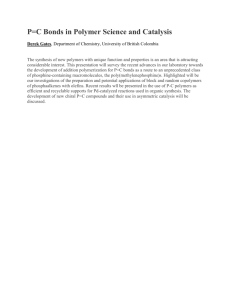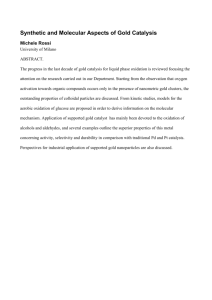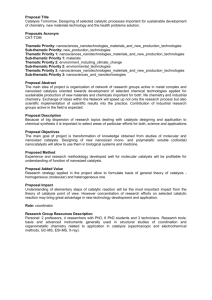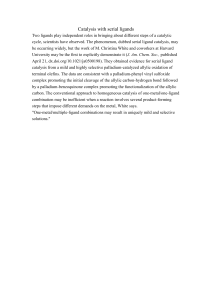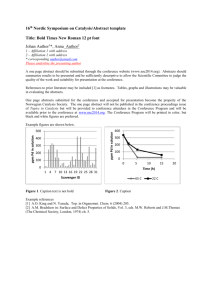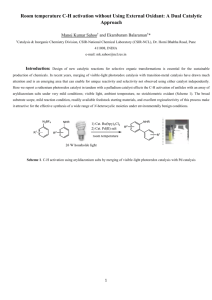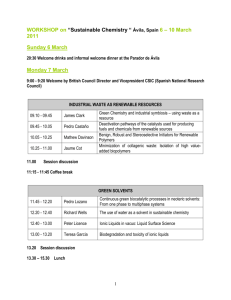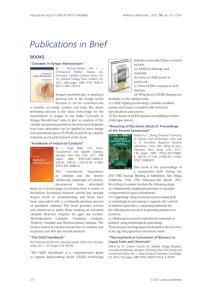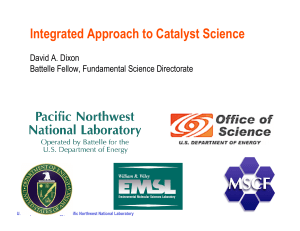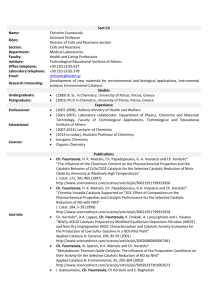The direct synthesis of hydrogen peroxide using supported gold
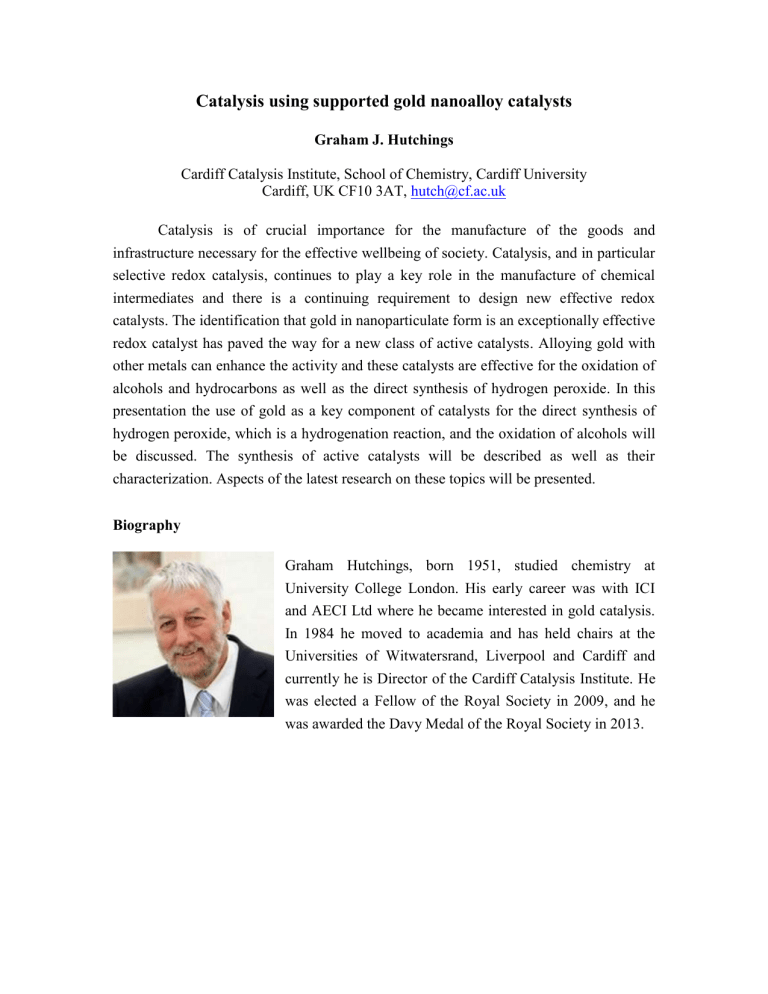
Catalysis using supported gold nanoalloy catalysts
Graham J. Hutchings
Cardiff Catalysis Institute, School of Chemistry, Cardiff University
Cardiff, UK CF10 3AT, hutch@cf.ac.uk
Catalysis is of crucial importance for the manufacture of the goods and infrastructure necessary for the effective wellbeing of society. Catalysis, and in particular selective redox catalysis, continues to play a key role in the manufacture of chemical intermediates and there is a continuing requirement to design new effective redox catalysts. The identification that gold in nanoparticulate form is an exceptionally effective redox catalyst has paved the way for a new class of active catalysts. Alloying gold with other metals can enhance the activity and these catalysts are effective for the oxidation of alcohols and hydrocarbons as well as the direct synthesis of hydrogen peroxide. In this presentation the use of gold as a key component of catalysts for the direct synthesis of hydrogen peroxide, which is a hydrogenation reaction, and the oxidation of alcohols will be discussed. The synthesis of active catalysts will be described as well as their characterization. Aspects of the latest research on these topics will be presented.
Biography
Graham Hutchings, born 1951, studied chemistry at
University College London. His early career was with ICI and AECI Ltd where he became interested in gold catalysis.
In 1984 he moved to academia and has held chairs at the
Universities of Witwatersrand, Liverpool and Cardiff and currently he is Director of the Cardiff Catalysis Institute. He was elected a Fellow of the Royal Society in 2009, and he was awarded the Davy Medal of the Royal Society in 2013.
